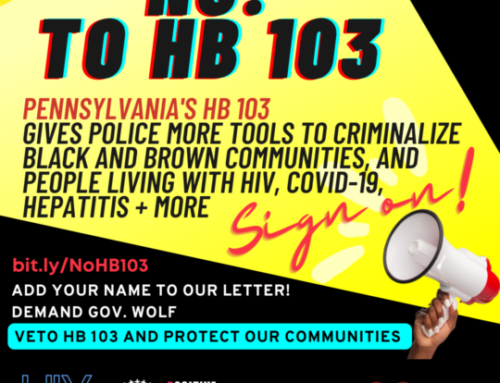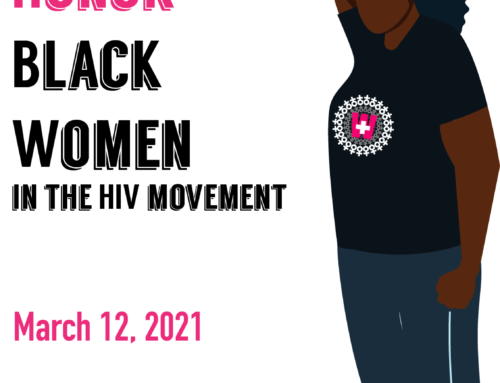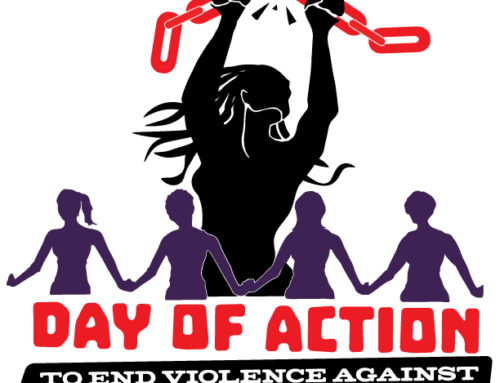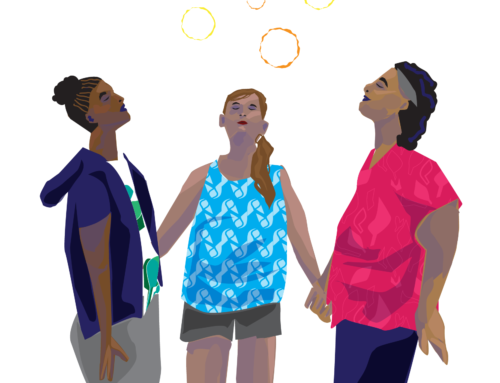Violence and oppression have devastating consequences for our bodies, hearts, minds, relationships and our movement. Transforming this requires a commitment from each of us.
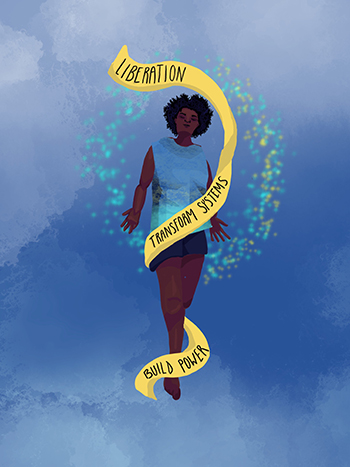 December 1, 2019: Every World AIDS Day, HIV re-emerges in the headlines, as we pay homage to the over 32 million people who have died of complications of AIDS since the beginning of the epidemic; honor the experiences of long-term survivors; and celebrate advances in science and medicine. For some of us, the media coverage itself can trigger painful reminders of loss, grief, and even the guilt of survivorship. And for many of us, from communities that have survived violence, genocide, and oppression, we are accustomed to fighting for visibility, equity, and justice. But staying in “fight mode” can be devastating to our own well-being, as well as our interpersonal relationships and our movements.
December 1, 2019: Every World AIDS Day, HIV re-emerges in the headlines, as we pay homage to the over 32 million people who have died of complications of AIDS since the beginning of the epidemic; honor the experiences of long-term survivors; and celebrate advances in science and medicine. For some of us, the media coverage itself can trigger painful reminders of loss, grief, and even the guilt of survivorship. And for many of us, from communities that have survived violence, genocide, and oppression, we are accustomed to fighting for visibility, equity, and justice. But staying in “fight mode” can be devastating to our own well-being, as well as our interpersonal relationships and our movements.
This year, we’re yearning for transformative healing – in our own spaces, and in our movements. With support from our friends at BEAM, and following the legacy of Cara Page and the Kindred Southern Healing Justice Collective, Positive Women’s Network – USA (PWN) is exploring what it looks like to explicitly commit to centering healing in our spaces. We are convinced that liberation does not include “cancel culture”, silencing each other’s pain, or reproducing patterns of oppression in our movements and institutions. Our battles are grounded in profound love for our people, and we’re committed to be here for the long haul. So what does it look like to prioritize deep love for ourselves and each other while we work, side by side, for justice and equity?
Healing justice is a framework that identifies how we can holistically respond to and intervene on generational trauma and violence and to bring collective practices that can impact and transform the consequences of oppression on our bodies, hearts and minds.
We expect to be tested in 2020. The extent to which we can commit to collective practice towards healing--not only individual healing – is the extent to which we will be prepared for the opportunities and challenges that will arise.
At PWN, we are in a moment of exploration about what this means for our work. Here are a few things we know that are informing our exploration:
- Pleasure, joy, and authentic connection have to be central in our movement spaces.
- Moving at the speed of trust* allows for deep and meaningful collaboration.
- We have abundant resources because we have people power on our side.
- Time to connect with ourselves and our loved ones is important, as is rest.
- Justice does not include perpetuating the carceral state.
- Black people and non-Black people of color need their own spaces for healing.
- It’s okay to make mistakes. What’s important is learning from them.
- Process is as important, if not more important, than the outcomes.
- It’s always important to understand and acknowledge power.
- There is always enough time for the right work*
We’ll be going hard for 2020. But we’ll also be figuring out different ways to work with and support our community. Stay tuned for an announcement, coming soon, for our new PWNCares Support Team program – tools and resources to more effectively address the concerns and needs of isolated and newly diagnosed women with HIV; and for more on how PWN is integrating healing justice in 2020.
PWN will be closed for two weeks at the end of 2019, to honor our own needs for rest and reconnection.
We invite you to make time and space for healing and joy in 2020 along with us.



